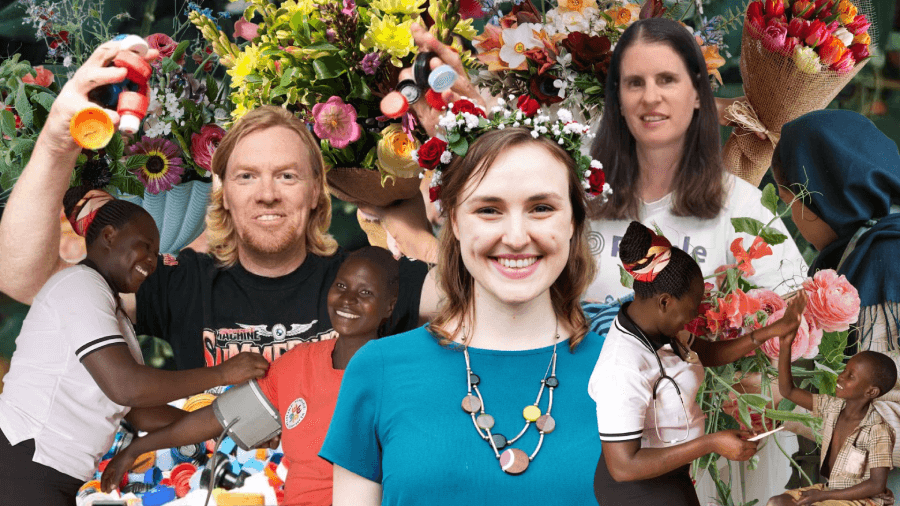Over the past decade it has become increasingly evident that technology is the most powerful economic force at our disposal – the rise of the largest companies in the world such as Amazon, Facebook and Google are testament to this rapidly changing landscape.
Within the social sector we are starting to see the emergence of a range of tech-based social enterprises both in Australia and around the world, although tech-social enterprise is still very much a cottage industry within the broader social enterprise movement.
Technology is a double-edged sword, on the one hand it is the lever driving greater consumption of resources, increasing income inequality, mental health issues and more, but at the same time it is arguably the most powerful tool we have to create scalable solutions for complex social problems. What has us so excited is that we believe it’s the first time in history that social entrepreneurs are now able to harness software and its inherent scalable qualities as a force for good, pioneering in unchartered territory.
We’ve written this blog to share some of our experiences to date, hoping to help others avoid some of the mistakes we’ve made, learn from what we’ve got right, and perhaps use our product if it can create genuine value for you.
Through Humanitix we’re changing the world through the most unlikely of industries – live events ticketing. We’ve been giving it a crack for years and recently started to turn heads after attracting philanthropic funding from Google, Atlassian, NSW Government and some of Australia’s leading philanthropists. In this post, we’ll share 5 tips that will help you build a successful startup from the ground up.
Humanitix is tackling the events ticketing industry valued at roughly $60 billion annually, and the vision is to redirect as much of this pie as possible into amazing charity projects, while improving accessibility at live events. For not-for-profit events, Humanitix offers its ticketing platform at cost (which is currently in line with Trybooking at a total 80c + 2.1% booking and credit card fee), but as we grow this will come down – so support a fellow not-for-profit its ethical procurement;)! If you’re using a platform like Eventbrite’s Professional service, Humanitix can probably save your not-for-profit more than 50% on fees that are eating into your fundraising!
Humanitix not only creates annuity-like donation streams (from for-profit events) to fund projects for those most in need, but it’s also the market leader in accessibility and is seriously investing in creating an events ticketing platform that facilitates social inclusion for people with disabilities at events. The Department of Social Services reports that the most pressing challenge faced by people with disabilities is ‘a lack of social inclusion and the multiple barriers to meaningful participation in the community.’ Through digital cognitive technologies, Humanitix combats the social marginalisation of people with disabilities, while simultaneously redistributing its share of the billions of dollars in event booking fees to provide economic opportunity for disadvantaged people across the world.
Growing a social enterprise can be a scary experience. In their time working on Humanitix, Josh and Adam have made significant sacrifices and overcome a number of challenges, which have inevitably led to a growing collection of lessons and insights. Here are Josh and Adam’s top five tips to keep in mind if you’re thinking or in the process of building a successful social impact business from the ground up.
Test Cheaply
Don’t try to perfect a product academically without industry experience, even if it means buying a competitor’s product, rejigging it, and then trying to sell it at a tiny scale to learn. You will learn a fortune, and it’s a good first step to test the idea. After you’ve had some industry experience, you’re in a much wiser position to try building a product from scratch.
Communication is Key
If you have a co-founder and you are annoying the other, you have to bring it up as soon as you become conscious of the frustration. Even if it’s a small issue, if you do this, you will deal with issues straight away and not let them fester. By letting the small things slide, you risk building up resentment, which will likely be the end of your partnership.
Co-founder Commitment
Recognise from day one that it will never be fair – at any point in time one of you will be working harder than your co-founder. As long as you have a co-founder who’s committed with a good work ethic, if you’re both conscious that an evolving business will pull on both of you differently, it will help avoid animosity at the toughest and most difficult moments of start-up life.
Balance the Emotional & Commercial
Take your pitch, and pitch it back to yourself to see if it still makes sense and is a good commercial model. If it isn’t compelling without the emotional pull, you have to ask yourself if this is really a good social investment. Perhaps it’s worth waiting for an idea that ticks both boxes—emotionally compelling and a strong investment case.
Rejection is Part of the Game
Some of the most important lessons are learned through failure, rejection, and being told that you can’t do something. Just like in weightlifting, having something to push against you forces you to become stronger. For example, don’t question yourself if people don’t think your idea won’t work and the social enterprise incubator hubs reject you. We applied for quite a few and didn’t get accepted by any.
Humanitix believes every child has a right to an education and the opportunity to reach their potential – and now one minute of your time will help them achieve this. In late 2018 Humanitix won a $1,000,000 grant from the Google Impact Challenge. With this grant, Humanitix will provide support to over 1,000,000 disadvantaged children around the world every year through tutoring, literacy programs, scholarships and meals. Education is the key to creating powerful change that will break the cycle of disadvantage and build a more sustainable future.
James Humpherson is General Manager at Humanitix.



